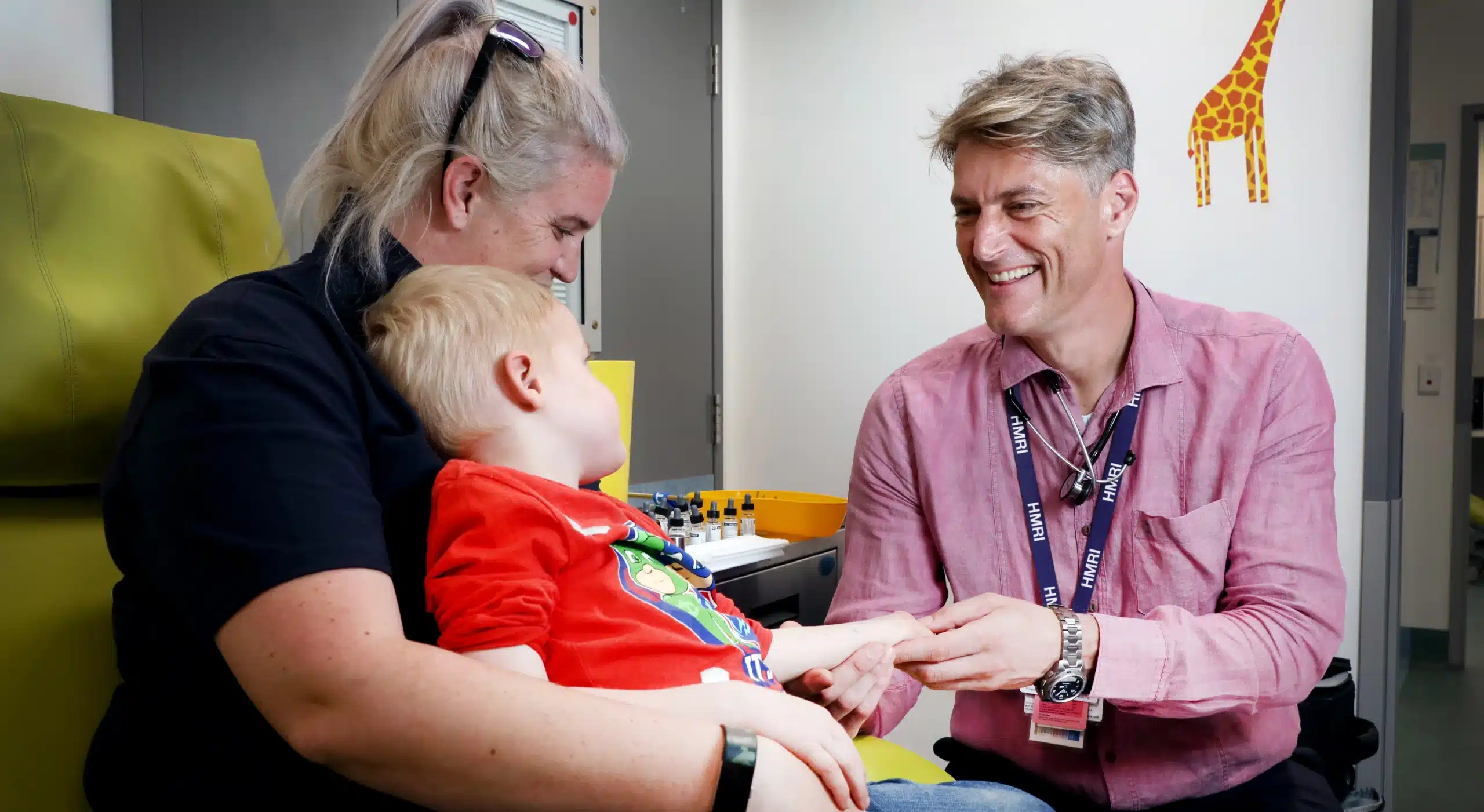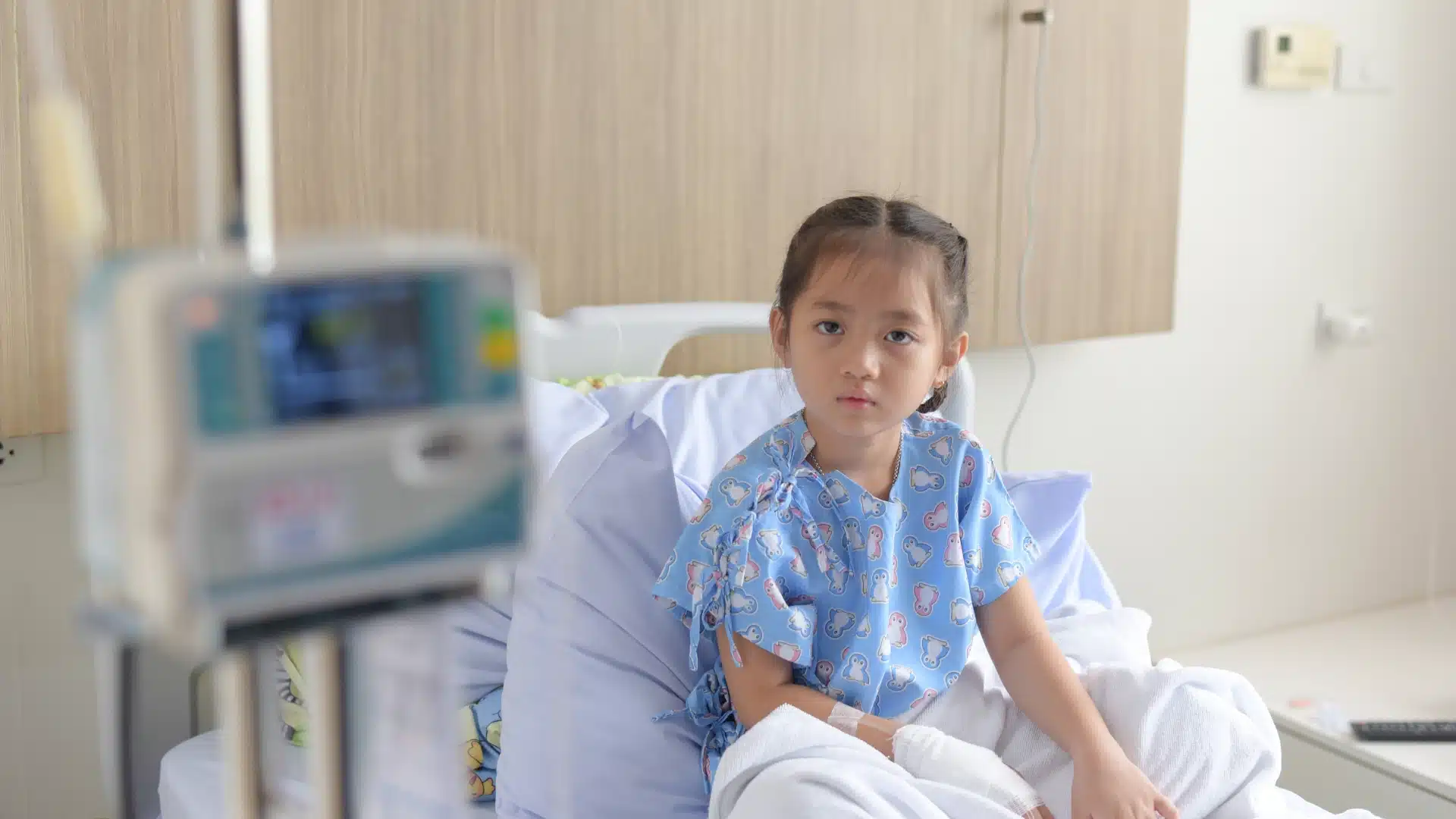
Since 1996, HCRF has helped to fund children’s vital research projects in areas like asthma, cancer, cystic fibrosis, diabetes and sleep disorders – illnesses that can affect any family at any time.
Help every child live a healthy and happy life.
HCRF is staffed by a passionate group of volunteers who donate their time and energy towards life-changing medical research.
HCRF fuels groundbreaking research projects at HMRI into health areas and conditions that affect children across the globe. They provide tools, resources, and support to HMRI researchers who are working tirelessly to change the lives of children and families everywhere.

CHILDREN’S RESEARCH GRANTS AWARDED
RAISED FOR LIFE-CHANGING KIDS HEALTH RESEARCH
YEARS OF HCRF SUPPORT
Some of the important projects HCRF have helped to support.
PARTICIPATING DADS AND DAUGHTERS
EDUCATORS TRAINED
GOVERNMENT AND SPORTING PARTNERSHIPS

HCRF is a generous fundraising partner of the Hunter Medical Research Institute. HCRF is authorised to raise funds on behalf of HMRI, and any money raised goes directly towards research supporting children and families in the Hunter New England region.
The close partnership between HCRF, HMRI and HNEkidshealth continues to make a real difference in the lives of families throughout the region
Your support for HCRF not only helps continue the life-changing research here at the Hunter Medical Research Institute, but also gives support to families and children across our region.
Every amount, large or small, helps us to meet our goal of helping children and families through life-changing health and medical research.
Our regular givers are stars to us!
Join our ReaCH for the Stars program and make a regular monthly or annual contribution to support Research for Children’s Health.
We deeply appreciate those in our community who choose to leave a gift in their will to us.
These important funds help to create a legacy of hope for children throughout the Hunter New England region and beyond.
Whether you’re a community member, school group or business, anyone can fundraise to help us fund life-changing research for children in our community.
Partner with HCRF by making a corporate donation, becoming an event partner, providing gifts or gifts-in-kind, including products or access to pro-bono services offering their expertise and time.
Each year, we hold charity events to raise funds for our latest children’s health research projects.
We welcome all to attend or donate items towards this worthy cause.
HMRI would like to acknowledge the Traditional Custodians of the land on which we work and live, the Awabakal and Worimi peoples, and pay our respects to Elders past and present. We recognise and respect their cultural heritage and beliefs and their continued connection to their land.

Hunter Medical Research Institute
We’re taking healthy further.
Locked Bag 1000
New Lambton
NSW, Australia, 2305



This site is protected by reCAPTCHA and the Google Privacy Policy and Terms of Service apply.
Copyright © 2024 Hunter Medical Research Institute | ABN: 27 081 436 919
Site by Marlin Communications
